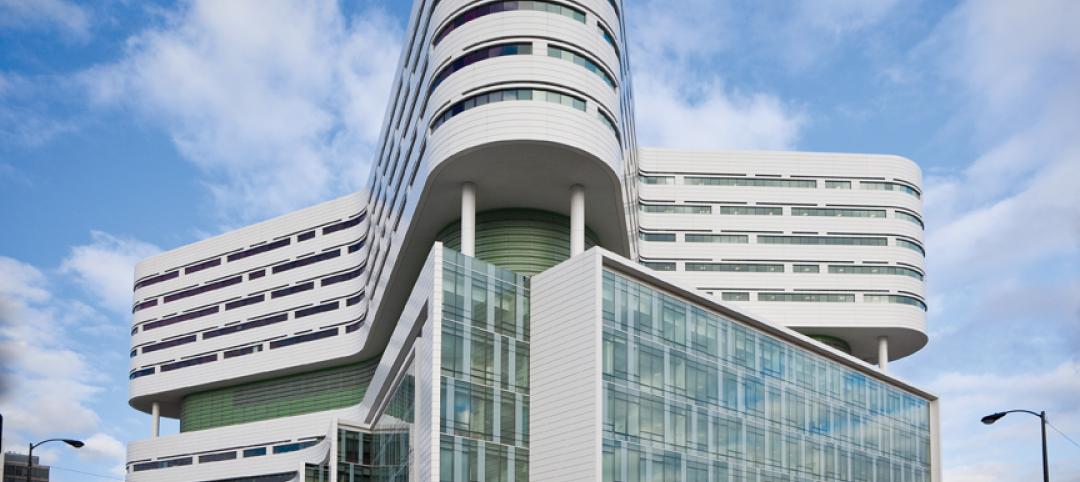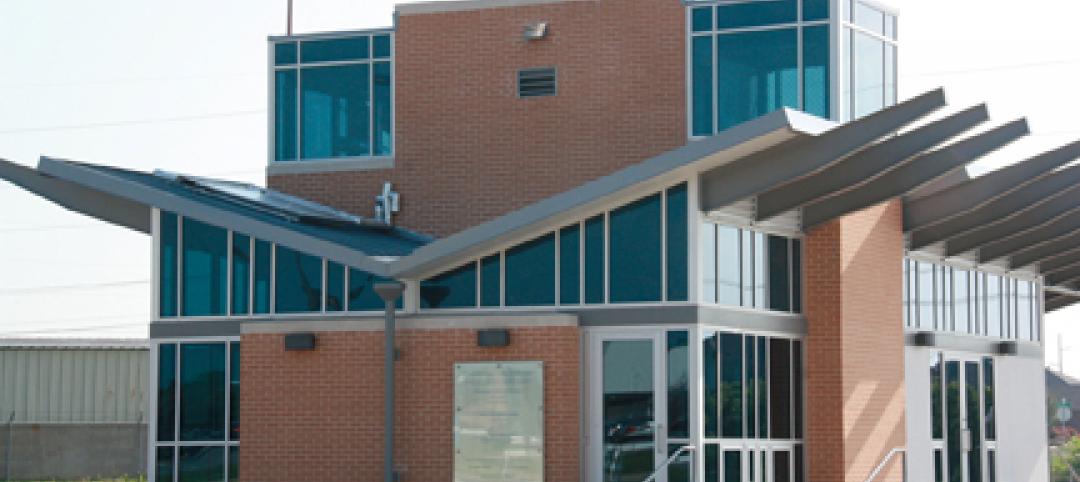The American Society of Civil Engineers estimates that the United States needs to spend $3.6 trillion by 2020 just to bring the country’s infrastructure back to a level described as adequate.
A new report by Transwestern, a privately held real estate firm, makes a case that investing in infrastructure can also be beneficial to surrounding commercial real estate. Called “Cranes and Lanes,” the report identifies major infrastructure projects in nine markets, and describes how the projects are impacting—or are likely to impact—the larger built environment.
“Cities have recognized that in order to stay competitive and generate economic development, the city’s infrastructure must keep up,” adds Brian Landes, a GIS expert and the report’s author. “While projects analyzed in the report run the gamut from new stadiums to reworked interchanges to entirely new districts, they do have one thing in common: a relatively certain boost in rents and occupancy.”
Several of the projects cited revolve around transit, such as the ongoing Modernization Project at Chicago’s O’Hare Airport, which Transwestern sees as a “catalyst for economic growth and job creation.” But there are a number of nonresidential building projects that are also expected to lead to ancillary development and construction.
Examples include:
• SunTrust Park, the new stadium for Major League Baseball’s Atlanta Braves designed by Populous, which should be completed next year. Transwestern says this stadium will bring with it a $400 million shopping, dining and entertainment district, as well as a new Omni Hotel and a 300,000-sf office building that Comcast will occupy.
• Seaport Square is a new neighborhood created from 23 acres of undeveloped land in South Boston’s emerging Seaport District. When it’s completed next year, it will encompass 2.75 million sf of residential, 1.25 million sf of office, 1.25 million ft of retail, 800,000 sf of hotels, 265,000 sf of cultural and civic space, and 2.25 million sf of parking. “The district will spur an evolution of Downtown Boston and shift the commercial center to the south and east,” the report states.
• Hudson Yards is the redevelopment of a vacant former industrial neighborhood along the West Side of Manhattan in New York City. It traces its roots to a 2005 rezoning aimed to transition the area into an extension of the Midtown business district. The project will eventually feature 6 million sf of office, 750,000 sf of retail, 5,000 apartments, 2 million sf of hotel and 14 acres of public space. Completion 2018.
• In San Francisco, Transbay District is currently under development. It will eventually house an intermodal transportation destination and 6 million sf of new office space. The new transit center will house three transportation options: (1) Caltrain will extend its terminus further downtown into the Transbay Transit Center; (2) The center will be the terminus for the future California High Speed Rail Line; and (3) the center will be the hub for regional bus service. Amidst the office build-out will be Salesforce Tower, the corporate headquarters for Salesforce and the second tallest building in the Western U.S. Completion 2020.
• Oakland Global Trade & Logistics Center will sit adjacent to the Port of Oakland on an Army base decommissioned in 1999. The project will bolster the West Coast’s third-largest port by adding an intermodal rail hub, additional railyards, a bulk terminal and more than 1 million sf of warehouse and distribution space. The project, which should be done next year, comes at an important time for the Port of Oakland, which moved nearly 2.3 million containers in 2015 and whose volume is expected to grow in the coming years.
Related Stories
| May 7, 2012
2012 BUILDING TEAM AWARDS: Fort Belvoir Community Hospital
A new military hospital invokes evidence-based design to create a LEED-certified facility for the nation’s soldiers and their families.
| May 7, 2012
2012 BUILDING TEAM AWARDS: Audie L. Murphy VA Hospital
How a Building Team created a high-tech rehabilitation center for wounded veterans of the conflicts in Iraq and Afghanistan.
| May 3, 2012
2012 BUILDING TEAM AWARDS: Rush University Medical Center
This fully integrated Building Team opted for a multi-prime contracting strategy to keep construction going on Chicago’s Rush University Medical Center, despite the economic meltdown.
| May 3, 2012
U of Michigan team looking to create highly efficient building envelope designs
The system combines the use of sensors, novel construction materials, and utility control software in an effort to create technology capable of reducing a building’s carbon footprint.
| May 3, 2012
Best commercial modular buildings and marketing programs recognized
Judges scored entries on architectural excellence, technical innovation, cost effectiveness, energy efficiency, and calendar days to complete.
| May 3, 2012
Zero Energy Research Lab opens at North Texas
The living lab—the only one of its kind in Texas—is designed to test various technologies and systems in order to achieve a net-zero consumption of energy.
| May 3, 2012
NSF publishes ANSI standard evaluating the sustainability of single ply roofing membranes
New NSF Standard provides manufacturers, specifiers and building industry with verifiable, objective criteria to identify sustainable roofing products.
| May 3, 2012
Gilbane to provide CM services for North Reading’s integrated middle/high school
The project scope includes a wastewater treatment plant, demolition of the existing high school and extensive athletic fieldwork.













